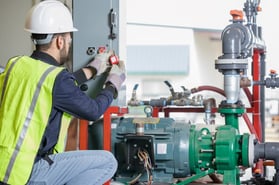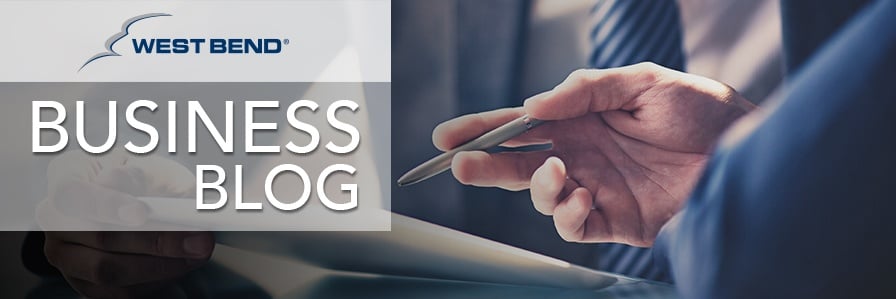As the fall colors fade, commercial building owners and facility managers find themselves amid another seasonal transition. While the start of every season has challenges, the fall season brings a tougher set of challenges for commercial structures than other seasons. Fluctuating temperatures and inclement weather can cause a variety of hazards that can lead to injuries. 
If your task list is overwhelming, here are some key tasks to focus on.
1. Remove leaves and other debris from sidewalks and parking lots.Wet weather can make fallen leaves extremely slippery. Remove them from your outdoor public areas to prevent slips and falls.
2. Winterize the irrigation lines.Preparing irrigation lines for winter can help prevent damage from freezing and costly repairs in spring.
3. Install plowing markers.Install markers to make snow removal more manageable for your employees or contractors. It's easier to do this when the ground is still warm. Once it's frozen, it’s a much harder job.
4. Ensure interior and exterior pipes are insulated.
Burst pipes are no fun, especially when the temperature is below zero. Inspect pipes now to ensure they’re properly insulated and no damage has occurred.
5. Seal parking lot cracks.
Water and freezing temperatures can cause the pavement to shift, especially if the water gets underneath it. Uneven pavement can be dangerous for your customers and employees. Come spring, you could be left with significant damage.
6. Have your heating system inspected.
Proper maintenance now is necessary to avoid expensive repairs in the future. If there’s a small problem now, the appropriate parts can be ordered and the problem can be fixed before frigid temperatures arrive.
7. Discuss snow removal expectations with your contractor.
Understanding how your property will be handled during winter will ensure safe conditions for your customers and employees. Things to understand include:
- When will your property be cleared?
- Will deicer be applied to high-traffic areas?
- What’s the contractor’s plan for large winter storms?
- How should immediate needs be addressed?
- Will there be dedicated equipment at your site?
Should a fire start in your business, your fire suppression system is critical in preventing property damage and loss of life. Be aware of extreme cold conditions. Cold temperatures can cause pipes to freeze and burst which obstructs the flow of water in the event of a fire. Be sure all areas of the building equipped with sprinklers have proper climate controls to prevent freezing. For more detailed information, check out our blog, “Understanding Your Fire Suppression System.” No matter the time of the year, your fire suppression system is essential.





